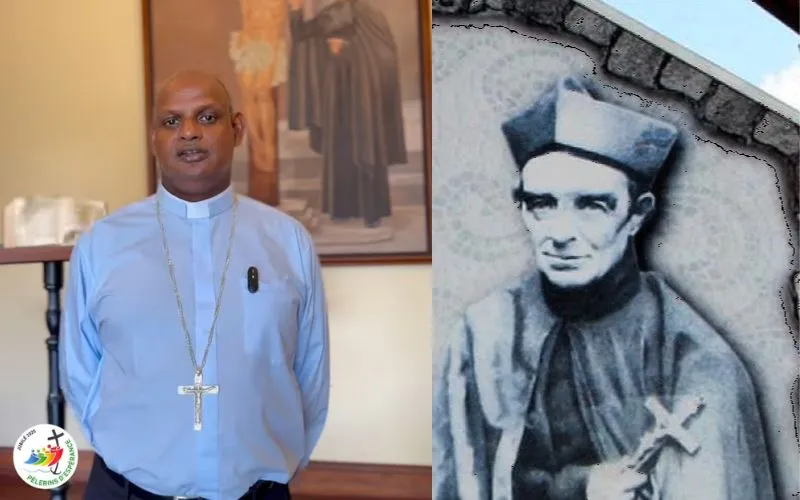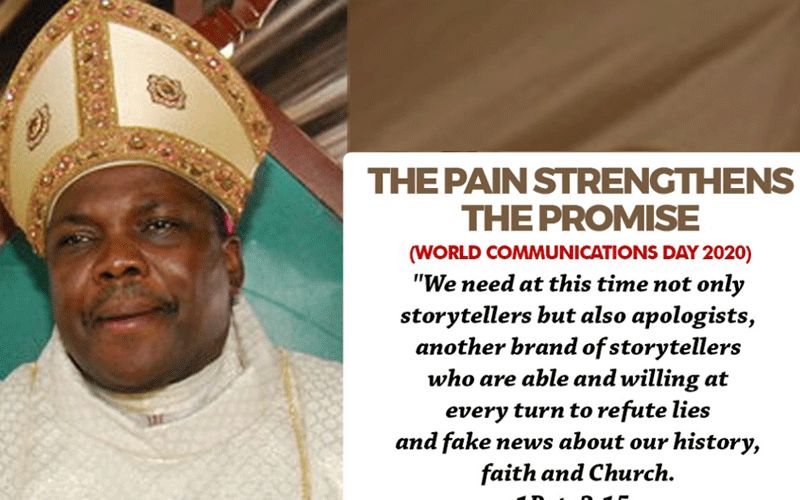“Even as we take for granted the Sacred Scripture as the story of stories, we learn to give more value and space to “the other scripture”, that is our oral, cultural and traditional history as well as contemporary events,” the Nigerian Prelate says.
He adds, “We must collocate contemporary tragedies like bereavements, terrorist attacks, conflicts, violent deaths, kidnappings and Corrupt practices which when reported especially through the modern media, seem to overwhelm and perplex us.”
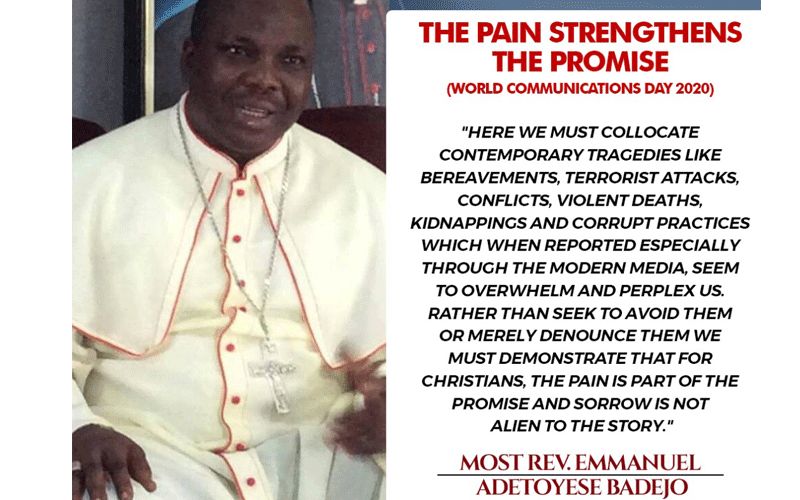
“Rather than seek to avoid them or merely denounce them we must demonstrate that for Christians, the pain is part of the promise and sorrow is not alien to the story,” Bishop Badejo says and urges communicators in Africa, guided by the Holy Spirit, to “speak up for the truth, for the faith, for the Church.”
Meanwhile, the leadership of the Catholic Secretariat of Nigeria (CSN), the administrative office of the Catholic Bishops’ Conference of Nigeria (CBCN) has hailed various media practitioners who have been using the means of communication to tell good and honest stories.
(Story continues below)
“We urged journalists to focus more on positive stories that will always elevate, shape and mold the society,” the Secretary General of CSN, Fr. Zacharia Samjumi said May 24 during Mass in Abuja on the occasion of WCD.
“Journalists should always work toward countering negative stories in the society by regularly embracing positive and balanced reportage of events,” Fr. Zacharia said.
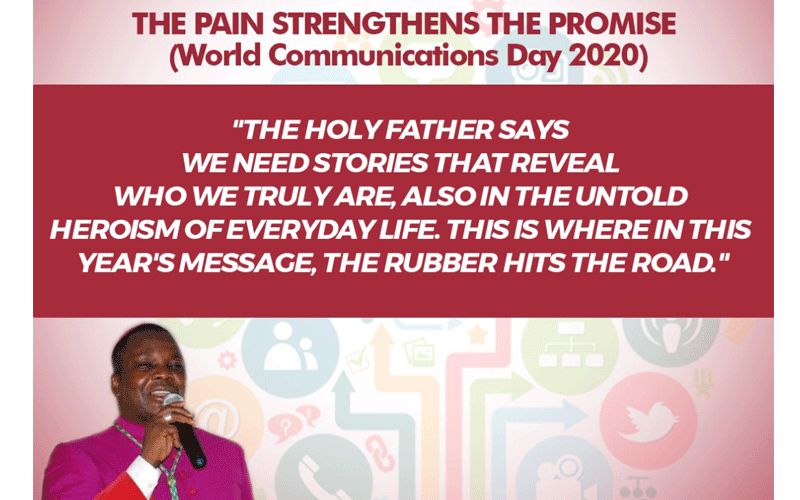
In Ghana, the Director for Social Communications of the Diocese of Sekondi-Takoradi in the Western Region of country, Fr. Emmanuel Dolphyne encouraged those who engage the media for their information needs to “apply discernment to all the stories they consume from the media” by asking some fundamental questions about the content proposed.
For those who engage the media to reach out to others, the Ghanaian Cleric said the messages need to reflect the three theological virtues of faith, hope, and love.
“We need to reflect on what we are to communicate to the world, namely faith to a world gradually rejecting God as creator, love to a world overcome with bitterness and pain, hope to a world in chaos because values are turned upside down,” Fr. Emmanuel said during the live-streamed Mass to mark this year’s WCD.
He also advocated for messages that reflect “unity to a world divided by color and language and justice to a world divided by the gap between the rich and poor through exploitation.”
“Our lives are influenced by stories and they leave their mark on us by shaping our convictions and behavior by helping us understand and communicate who we are.”
“Pope Francis highlighted the importance of memory in communications. However, memory is not a static body but a dynamic reality,” he said and explained, “It is the means by which the stories, hopes, dreams and experience of one generation are passed on to another.”
“The spread of the COVID-19 pandemic has genuinely highlighted the importance of telling our story our own way,” he further said, adding, “with the ban on public gathering, we resorted to the use of modern means of social communication to tell our story. We therefore need to make use of the media to help us achieve the goal of reaching our faithful.”
In order to be effective storytellers, Fr. Emmanuel said, “We need to wait on to the Lord to equip us for this mission.”
“Let us invite the Holy Spirit to fill us with the message, energize and empower us,” he concluded.
Damian Dieu Donne Avevor in Ghana contributed to this news report.
Jude Atemanke is a Cameroonian journalist with a passion for Catholic Church communication. He holds a Bachelor’s Degree in Journalism and Mass Communication from the University of Buea in Cameroon. Currently, Jude serves as a journalist for ACI Africa.



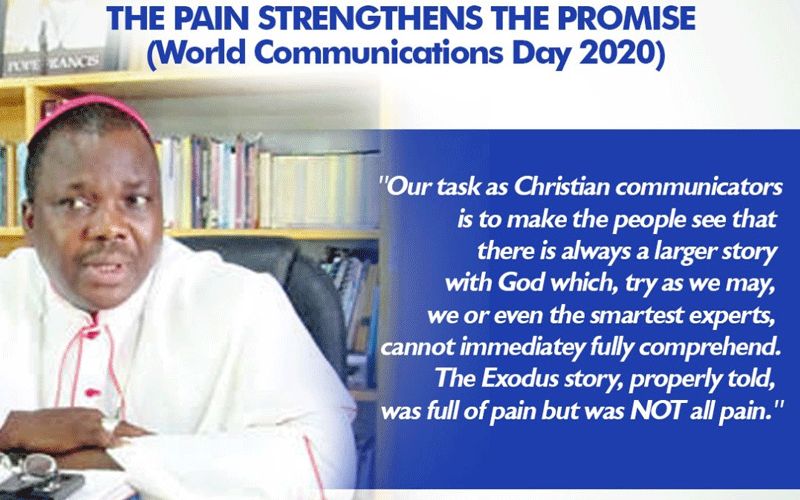
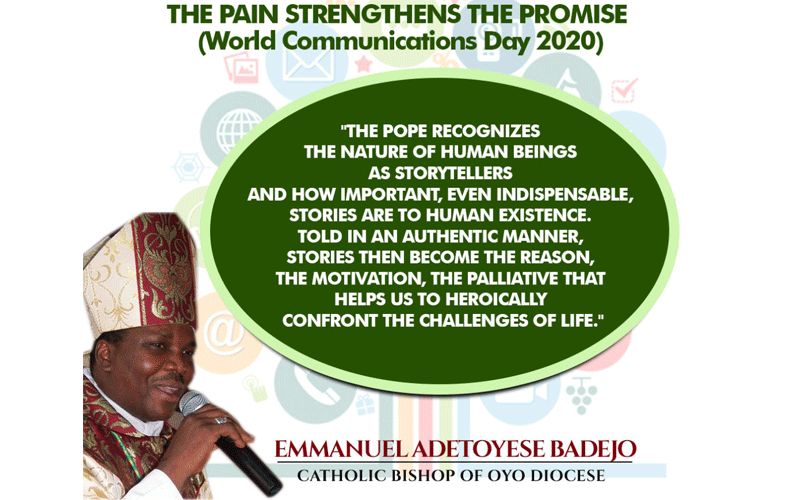 In his message titled, “The Pain Strengthens the Promise,” Bishop Badejo explains that Pope Francis recognizes the nature of human beings “as storytellers and how important, even indispensable, stories are to human existence.”
In his message titled, “The Pain Strengthens the Promise,” Bishop Badejo explains that Pope Francis recognizes the nature of human beings “as storytellers and how important, even indispensable, stories are to human existence.”